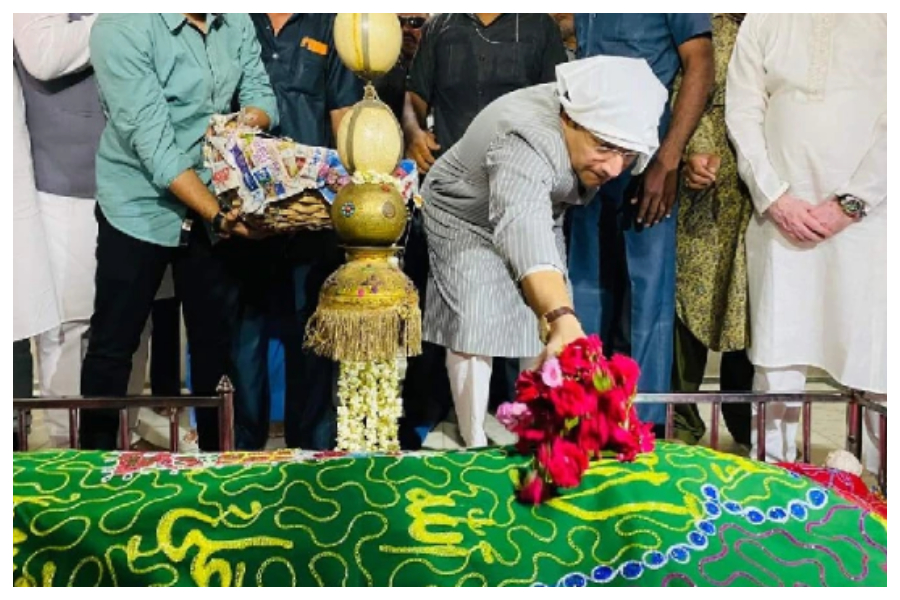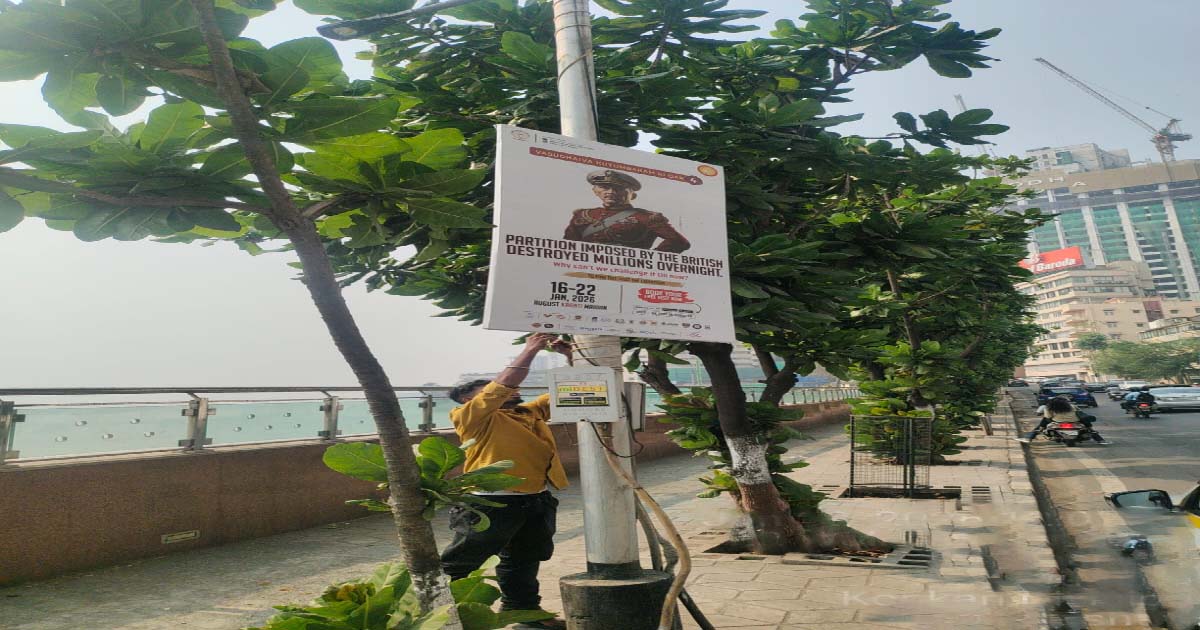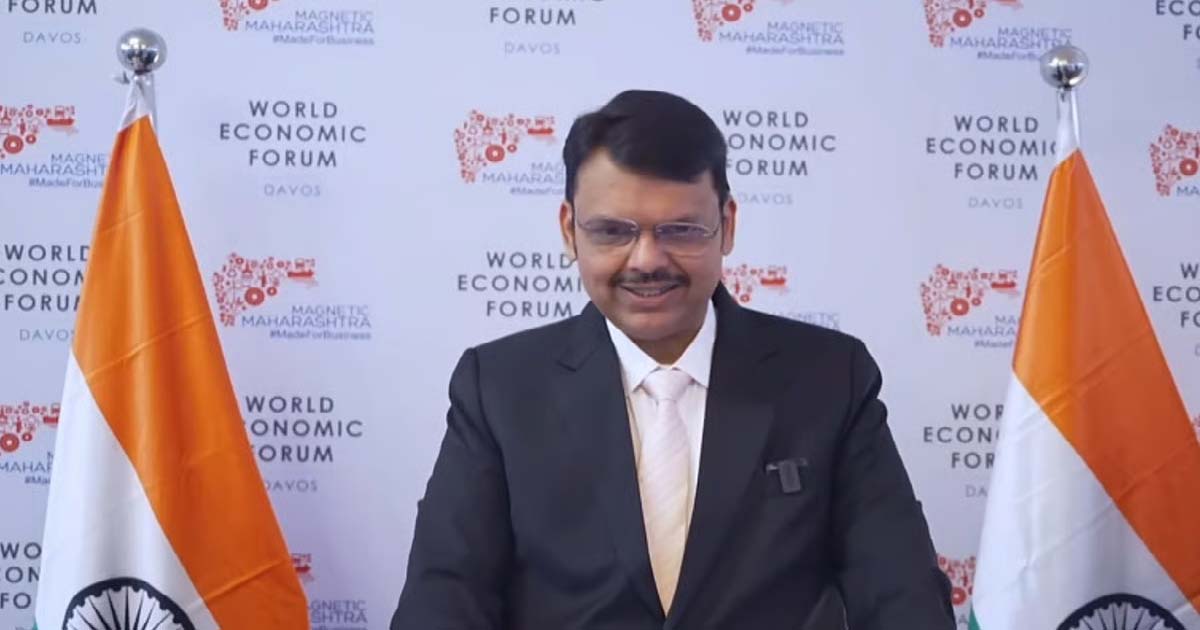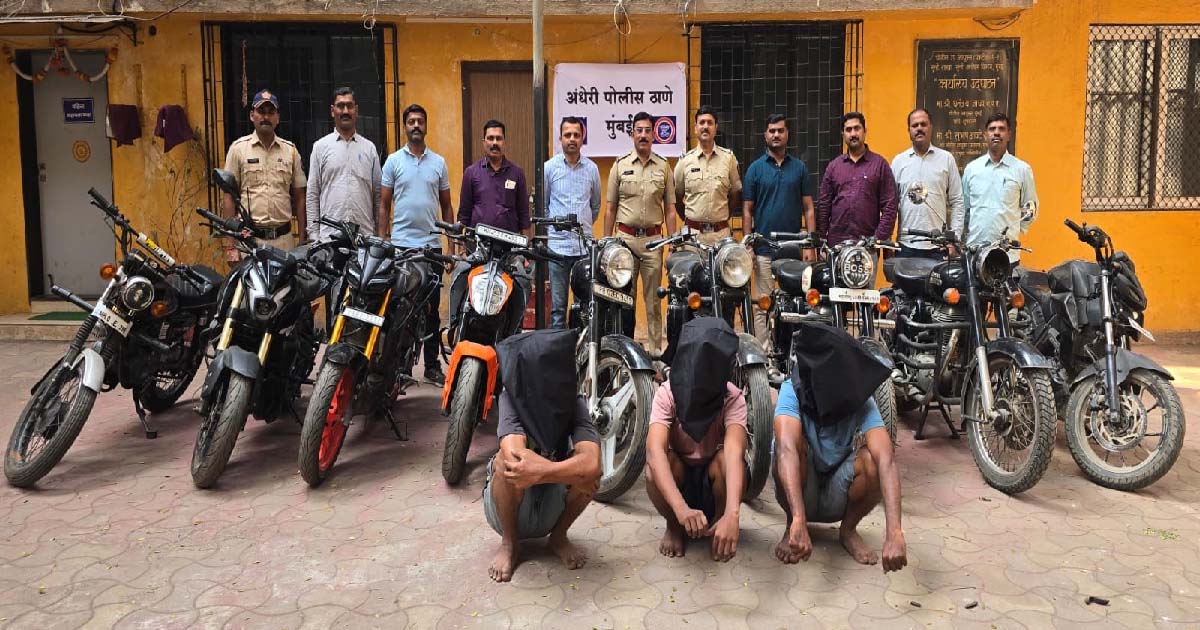Maharashtra
Shiv Sena, MNS And BJP slam AIMIM leader’s visit to Aurangzeb’s tomb

A political row was ignited in Maharashtra after AIMIM leader Akbaruddin Owaisi paid homage at the tomb of Mughal Emperor Aurangzeb and later attacked state politicians, here on Friday.
Referring to the ongoing ‘azan’ versus ‘Hanuman Chalisa’ controversy at a political meeting, without taking names, Owaisi targeted Maharashtra Navnirman Sena (MNS) President Raj Thackeray and urged his supporters to maintain restraint.
“Dog will continue to bark. You keep quiet, ignore them. I am not going to abuse anyone. We have a MP here and you people have been rendered homeless,” Owaisi said on Thursday.
Owaisi was referring to the court-ordered demolition of around 340 illegal structures in the Labour Colony area of the city, and now the eligible homeless shall be rehabilitated under the Prime Minister Awas Yojana scheme in the same area to be renamed as ‘Vishwasnagar’.
Taking strong umbrage at the oblique references, MNS’ leader Gajanan Kale demanded strong action from the Maharashtra government against Owaisi for praying at the Aurangzeb tomb.
“If they don’t take action, then we will do it… We shall dig his grave right beside Aurangzeb’s tomb,” warned Kale.
One of the tourist circuit highlights of Aurangabad, Aurangzeb’s simple memorial is situated in Khuldabad, and Owaisi was accompanied by All India Majlis-E-Ittehadul Muslimeen MP from the city, Syed Imtiaz Jaleel and ex-MLA Waris Pathan among others.
Jaleel wondered what the entire fracas was about as there are many dargahs of spiritual leaders in Khuldabad and all those who come there also visit the final resting place of Aurangzeb.
BJP MLA Nitesh Rane urged Maharashtra Police to “hand over Owaisi for 10 minutes” and they would send him to the same place as Aurangzeb.
“You are challenging us… We, the Marathas have put him there, for 25 years, Chhatrapati Shivaji Maharaj fought hima He (Aurangzeb) was not some Sufi saint,” said Rane.
The BJP took the opportunity to attack the Maha Vikas Aghadi government for not acting against Owaisi who it alleged was instigating communal passions.
Veteran Sena leader from Aurangabad, Chandrakant Khaire claimed that nobody – Hindu or Muslim – visits the Aurangzeb tomb as he was considered the ‘most cruel’ of all Mughal Emperors, and blamed Owaisi and his supporters for politicising peoples’ emotions.
“The real motives behind Akbaruddin Owaisi’s trip to the tomb are not clear. We all know his earlier statements. If he had gone there to create problems in society, we shall not tolerate it,” Khaire made it clear.
Maharashtra
Mumbai: BMC takes strict action against those who put up banners without permission, cases registered at Malabar Hill and DB Marg police stations

Mumbai: The Mumbai Municipal Corporation administration has provided space for displaying temporary advertisements within the municipal limits, some institutions, organizations and traders are illegally putting up banners on electricity poles on both sides of the roads. A case has been registered against such institutions, organizations and traders by the Licensing Department at Gaudevi, Malabar Hill, Dr. DB Marg police stations against an unknown person. This action was taken on two days i.e. on 21st and 22nd January 2026. A total of 41 banners were removed in this action. The Licensing Department of the Municipal Corporation has also appealed to the public to display advertisements only after taking permission from the Municipal Corporation. The Municipal Corporation has also made it clear that strict action will continue against those who put up banners, hoardings and posters in public places without permission.
This action has been taken by the Licensing Department under the guidance of Mrs. Chanda Jadhav, Deputy Commissioner (Special) of the Mumbai Municipal Corporation. The Licensing Department conducted the operation at Dr. Gopal Rao Deshmukh Marg (Peder Road), Pandita Ramabai Marg, Bholabhai Desai Marg, Walkeshwar, Malabar Hill, Dr. Dadasaheb Bhadkamkar Marg, Maulana Shaukat Ali Marg, Sardar Vallabhbhai Patel Marg and Raja Ram Mohan Roy Marg of the Municipal Corporation. In addition, First Information Reports (FIRs) regarding the registration of the offence have been registered at three police stations namely Gawadevi, Malabar Hill and Dr. Dadasaheb Bhadkamkar Marg. Accordingly, a case has been registered at the concerned police station. As per the directions of the High Court, it is prohibited to put up any hoarding, banner or poster in public places within the limits of the Municipal Corporation without a permit. It is prohibited to put up any advertisement hoarding, banner or poster on any subject on public roads and footpaths under the jurisdiction of the Mumbai Municipal Corporation without the prior permission of the Municipal Corporation. Sections 328/328-A, 471 of the Maharashtra Prevention of Defacement of Property Act 1995 and 18 of the Mumbai Municipal Corporation Act provide for legal action against any person or organisation who puts up such hoardings, banners or posters without permission. The Licensing Department has stated that if these provisions are violated, legal action will include registering a case against the person concerned and filing a case in court.
Complaint facility on toll-free number
The Mumbai Municipal Corporation administration has appealed to citizens to contact the toll-free number 1916 to register a complaint against unlicensed and unauthorized hoardings and banners. The facility to register a complaint against unlicensed hoardings is also available on the municipal corporation’s official website www.mcgm.gov.in and on social media @mybmc.
Maharashtra
Maharashtra Govt & CANEUS International Partner To Establish World’s First Mid-TRL Innovation Institute In Mumbai

Davos [Switzerland]: CANEUS International and the Government of Maharashtra announced their partnership at the World Economic Forum in Davos to establish the world’s first dedicated Mid-Technology Readiness Level (TRL) Innovation Acceleration and Skilling Institute. The Memorandum of Understanding was signed in the presence of Maharashtra Chief Minister Devendra Fadnavis and Milind Pimprikar, Chairman of CANEUS International.
According to a press release from CANEUS International, the facility will be located in the Mumbai Metropolitan Region (MMR) and will focus on frontier technologies, including aerospace, space, energy, and deeptech.
The project aligns with the World Economic Forum’s 2026 theme regarding the responsible deployment of innovation at scale. The institute aims to address Mid-TRL levels 4-6, which represent the transition from laboratory research to qualification and early production. The facility will be situated within a purpose-built ecosystem in the MMR, spanning 10 million square feet to support global collaboration and industry partnerships.
At the signing of the MoU, the Chief Minister of Maharashtra, Devendra Fadnavis, reaffirmed the State’s strong commitment to the global investor community. He emphasised, “Maharashtra is well equipped and proud to partner with CANEUS International to pioneer the creation of innovation centres across dynamic sectors, frontier technologies, and aerospace. The State takes pride in partnering with this prestigious institute near Mumbai–the commercial capital of India and the world’s fourth-largest economy–perfectly aligning with Maharashtra’s aspirations to scale its innovation ecosystem globally.”
The institute is designed to bridge the “valley of death” in technology development. Milind Pimprikar, Chairman of CANEUS International, said, “This world-first Mid-TRL Innovation Acceleration Institute will bridge the ‘valley of death’ by advancing TRL 4-6 innovations through rapid prototyping, systems integration, validation, and flight/field trials, taking breakthroughs from lab to qualification and early production for real-world deployment and global competitiveness.”
The curriculum and skilling pathways will be developed in collaboration with original equipment manufacturers (OEMs), Tier-I suppliers, and research institutions to meet industry requirements. This focus on system integration readiness is intended to fill a critical global gap in frontier technology programmes where reliability and deployment readiness are essential.
This partnership supports the Viksit Maharashtra 2047 vision and the state’s objective of becoming a trillion-dollar economy. It also aligns with the Maharashtra Industries, Investment & Services Policy (MIISP) 2025. The initiative emphasises industry-aligned skilling through public-private partnerships to create workforce pathways for strategic sectors.
Maharashtra
Mumbai sports bike theft gang exposed 9 cases solved after bike thieves arrested in Andheri, big success for Mumbai Police

Mumbai: Police have busted a gang of sports bike thieves in the Andheri police station limits and have claimed to have arrested three accused. Nine sports motorbikes worth Rs 18 lakh have also been recovered from their possession. On January 13, 2026, a complaint was filed with the police that an Enfield bike was stolen from the BMC office here. The bike thieves are residents of Sakinaka and Andheri Sangharsh Nagar and are not available at home at night, after which the police laid a trap and monitored them for three days and later arrested them. The accused have been identified as Om Kar Sunil, 22, a rickshaw driver from Sakinaka, Sagar Rahul, 19, an unemployed Chandivali, and Kartik Vishnu, 18, a student from Sakinaka, Sakinaka. After their arrest, it was revealed that these accused were involved in 9 thefts and other cases. The police have exposed a big racket of thieves and arrested the accused. This operation was carried out by DCP Datta Nalawade on the instructions of Mumbai Police Commissioner Devin Bharti.
-

 Crime3 years ago
Crime3 years agoClass 10 student jumps to death in Jaipur
-

 Maharashtra1 year ago
Maharashtra1 year agoMumbai Local Train Update: Central Railway’s New Timetable Comes Into Effect; Check Full List Of Revised Timings & Stations
-

 Maharashtra1 year ago
Maharashtra1 year agoMumbai To Go Toll-Free Tonight! Maharashtra Govt Announces Complete Toll Waiver For Light Motor Vehicles At All 5 Entry Points Of City
-

 Maharashtra1 year ago
Maharashtra1 year agoFalse photo of Imtiaz Jaleel’s rally, exposing the fooling conspiracy
-

 National News1 year ago
National News1 year agoMinistry of Railways rolls out Special Drive 4.0 with focus on digitisation, cleanliness, inclusiveness and grievance redressal
-

 Maharashtra1 year ago
Maharashtra1 year agoMaharashtra Elections 2024: Mumbai Metro & BEST Services Extended Till Midnight On Voting Day
-

 National News1 year ago
National News1 year agoJ&K: 4 Jawans Killed, 28 Injured After Bus Carrying BSF Personnel For Poll Duty Falls Into Gorge In Budgam; Terrifying Visuals Surface
-

 Crime1 year ago
Crime1 year agoBaba Siddique Murder: Mumbai Police Unable To Get Lawrence Bishnoi Custody Due To Home Ministry Order, Says Report




















